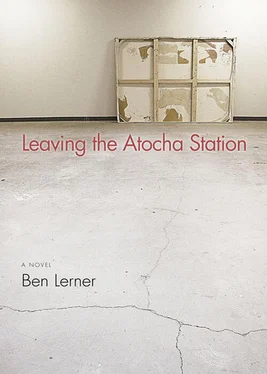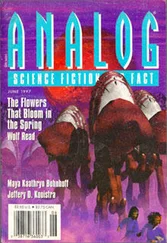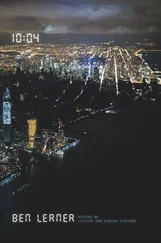__________________________
As night fell La Plaza Santa Ana began to fill with tourists, and one could also see some Madrileños meeting up, kisses on both cheeks, although the locals weren’t out in force until much later. You could hear several languages, American or Australian English to me the most grating, chairs scraping the pavement and cutlery scraping plates, glasses being collected from the metal tables or placed there, and usually a violinist, inoffensively unskilled. In the distance airliners made their way to Barajas, lights flashing slowly on the wing, the contrails vaguely pink until it was completely dark. I imagined the passengers could see me, imagined I was a passenger that could see me looking up at myself looking down.
In the first phase of my research, I knew no one except Jorge and his friends and they never invited me to do anything on weeknights; I’m not sure how they would have invited me, since I saw Jorge only on Fridays at the language school. I didn’t have a phone, and they didn’t know exactly where I lived. Since I had failed to attend any of the social events the foundation arranged, there was no one whose company I could join if I wanted to do the things one was supposed to do while in Madrid: progressing from one bar to another while getting progressively fucked up, then arriving at a multistory discoteca and dancing, if that’s even the word, to horrible techno, making out for hours, hours, then having chocolate con churros and stumbling home near dawn. This was apparently routine for a remarkable range of ages; certainly people of several generations were out very late; kids were still playing in the plaza at midnight; the late middle-aged drank into the early morning. I was unaccustomed to such hours or so much public space. While I thought of myself as superior to all the carousal I was in fact desperate for some form of participation both because I was terribly bored at night and because I was undeniably attracted to the air’s vulgar libidinal charge. Of course I could not sit in the plaza alone, although I saw men do that, guidebooks beside their beers, and I could not approach one of the innumerable roving bands and just ask to join their company, but I came to realize that I could leave my apartment and enter the flow of the night unashamed so long as I walked purposefully, pretending I had somewhere to be.
I would roll one or two spliffs and put them in a pack of cigarettes, drink a glass of water, brush my teeth, walk down the stairs and out of the apartment into the plaza. I felt as I crossed the plaza that I was observing myself from the roof of my apartment; from there I could see that I was walking too fast and I’d stop, light a spliff or cigarette, then resume walking at a less frantic pace toward Puerta del Sol, the literal center of the city, which I could reach in a few minutes. From Sol I would pause and decide where to pretend I needed to be.
Most often I walked down Gran Vía, where the prostitutes were out, smoking in front of the shuttered storefronts, dull glow of orange and purple lipstick, and eventually made my way into Chueca, a largely gay neighborhood known, so the guidebooks said, for its vibrant nightlife, but where there tended to be fewer Americans. The streets in Chueca were so narrow and its plaza so full in those months that it was easy to mill around in such a manner that people on your right assumed you were with the people on your left and vice versa. This was also true in its various overflowing bars; I could order a drink and stand looking bored in the middle of the bar and people would suppose I pertained to one of the adjacent parties; indeed, people in one large group or another often began to speak to me, assuming I was one of their number whom they hadn’t had the chance to meet. Over the general din I could hear next to nothing, but I smiled and nodded and sometimes slightly raised my glass, and henceforth turned a little more toward the group whose member had addressed me; slowly, I would be absorbed.
Which is how I met Arturo, a turning point in my project. I was at a very crowded bar in Chueca, a mixed bar with Moroccan decor and sequined pillows everywhere, drinking a cloying mojito when he arrived and began greeting the group I was orbiting. He embraced me warmly after he embraced the others and, since I was the closest to the bar, asked if I wanted a drink. While we waited to be served he asked me how I knew so and so, who I assumed had convened the gathering. I shrugged in a way that indicated everybody knew so and so. Then he asked where I was from and I lied: New York. He said either that he had recently been to New York or that he was going to New York soon. For what, I asked. He answered for a musical performance, or to perform music, or for some sort of performance art. What are you doing in Madrid, he said. Here I delivered a version of the answer I had memorized for my Spanish exam in Providence, a long answer composed by a fluent friend, regarding the significance of the Spanish Civil War, about which I knew nothing, for a generation of writers, few of whom I’d read; I intended to write, I explained, a long, research-driven poem exploring the war’s literary legacy. It was an answer of considerable grammatical complexity, describing the significance of my project in the conditional, the past subjunctive, and the future tense. To my surprise and discomfort Arturo’s interest was piqued and he peppered me with questions: have you met so and so, the scholar or poet; have you visited such and such museum or archive. It’s difficult to hear in this bar, I said. He ordered two beers and when they arrived he paid and motioned for me to follow him outside.
Outside we lit cigarettes and before he could repeat his questions I hurriedly said: my Spanish is not good. I read very well, I lied, but I don’t speak. He laughed and asked if I knew various people and when I said no, he would say, with excitement, that he had to introduce me. You’re very nice, I kept saying, which struck him as very funny. Fashionable people kept greeting him as they passed. He told me he owned or worked at a gallery in Salamanca, the ritziest neighborhood in the city, and that his brother or boyfriend was either a famous photographer, sold famous photographs, or was a famous cameraman. He said something about how his gallery was a place where poets gathered, held readings, and he spoke at length in terms I could barely follow about his own love for poetry, listing several Spanish poets of whom I’d never heard, plus the obligatory mention of Lorca. He gave me the gallery’s card, first writing a cell phone number on one side of it, then put his arm around me warmly and returned me to the group inside the bar. There everyone assumed I was a friend of Arturo’s and we exchanged names and, with the two women nearest me, Teresa and Ester, kisses on both cheeks. Arturo immediately entered into conversation and I slipped away to the bar to order another mojito, and every time thereafter I thought I might be called upon to speak, I absconded to the bar. I would ask, largely by indicating my glass or theirs and raising my eyebrows, if I could bring anyone anything; Ester disappeared after a while but I bought Teresa and Arturo several mojitos and it was when I found myself enthusiastically explaining my project to Teresa that I realized I had had too many.
I need air, I said, and left the slowly spinning bar; I intended to walk home and pass out. While I was leaning against the wall of the bar collecting myself for the walk I was surprised to find Arturo and Teresa suddenly beside me, asking if I was all right. Yes, I said, and straightened myself abruptly, causing the spins to resume, redouble; I realized I would vomit. I walked across the street where there were fewer people and a public trash can and, just before I reached it, vomited indeed. When I finished being sick, I stood up and there they were just across the street, waiting for me, Teresa smoking and Arturo proffering a bottle of water, smiling. I crossed, washed out my mouth, drank some of the water, and thanked him. We’ll drive you home, he said, we’re going to another party anyway.
Читать дальше












